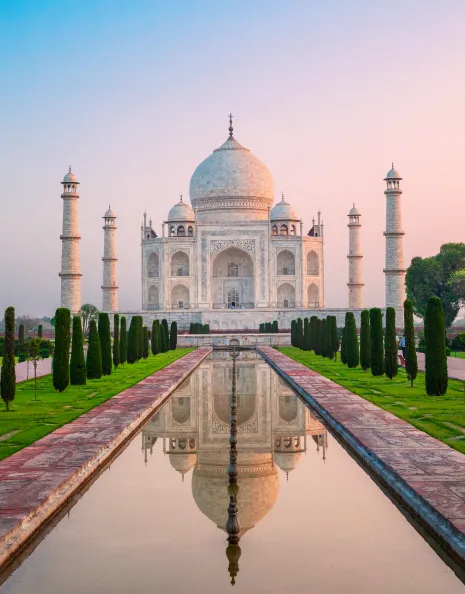Entering India in 2025
India remains a diverse and vibrant destination in 2025, welcoming millions of visitors each year. Travelers should be mindful of updated visa rules, customs regulations, and cultural practices to ensure a smooth and respectful journey.
Things to Know Before Entering India
Before traveling to India, it’s important to understand the entry requirements and a few practical details that will make your trip smoother.
Visa & Entry Requirements
- Your passport must be valid for at least six months on arrival.
- Check passport information carefully before applying to avoid visa delays.
- e-Visa entry is permitted only at designated international airports and seaports (Delhi, Mumbai, Chennai, Bengaluru, etc.).
- Confirm the latest approved ports of entry to avoid complications at immigration.
Health & Vaccination
- Yellow Fever vaccination is indeed mandatory for travelers from affected countries (per India’s Ministry of Health)
- Hepatitis A/B, typhoid, and tetanus are strongly recommended but not compulsory.
Cultural Etiquette & Dress Code
- Modest clothing covering shoulders and knees is expected at temples and religious sites.
- Shoes must be removed before entering temples; avoid public displays of affection in conservative areas.
Local SIM & Connectivity
- Passport and visa copies are required to purchase a local SIM; strict registration applies.
- Travelers may consider international eSIMs for instant connectivity on arrival.
Transportation & Domestic Travel
- India’s domestic flights and trains often require the same passport and visa used at entry for ID checks.
- Tickets must match the traveler’s full name as in the passport; mismatches can lead to boarding denial.

India Highlights
Capital: New Delhi
IST, UTC +5:30
Currency: Indian rupee (INR)
Language: Hindi and English
Tropical climate
Best Time to Visit:
October to March
Popular Tourist Sites:

FAQs about entering India
1.
What types of India eVisa are available?
India offers several categories of e-Visa to suit different travel purposes:
Tourist e-Visa: Available for 30 days (double entries), 1 year (multiple entries), or 5 years (multiple entries).
Business e-Visa: Valid for 1 year with multiple entries.
Medical e-Visa: Valid for 60 days with triple entries.
Ayush e-Visa: Valid for 60 days with triple entries, for wellness and traditional medicine treatments.
Conference e-Visa: Valid for 30 days with a single entry.
Student e-Visa: Valid for 365 days with four entries.
Travelers should choose the e-Visa category that matches their purpose of visit and length of stay, as overstaying or misuse may result in penalties.
2.
How long does it take to process an India e-Visa?
The processing time depends on the service level you choose:
Normal Processing: Guaranteed within 5 days.
Urgent Processing: Guaranteed within 3 days.
Travelers are advised to apply well in advance of their planned trip, even if faster options are available, to avoid last-minute delays.
3.
Are vaccinations mandatory in India?
Vaccinations are not universally mandatory for all travelers, but certain requirements apply. A Yellow Fever vaccination certificate is compulsory if you are arriving from a country where the disease is present. While not legally required, it is strongly recommended to be up to date with hepatitis A and B, typhoid, tetanus, and routine immunizations to reduce health risks during your trip.
4.
Can I undertake tourism while on a visit to India on a Business/ Conference/ Medical Visa?
Foreign nationals must use their visa primarily for the purpose declared in their application, such as business, attending a conference, or medical treatment. However, travelers (except Pakistani nationals) holding any valid visa are also permitted to engage in tourism activities during their stay. This allowance is secondary, meaning that while sightseeing is permitted, the main purpose of your visit must still align with the visa category issued.
5.
Can I use my foreign SIM card in India?
International roaming services work in India, but are often expensive. For better value, travelers can purchase a local SIM card by presenting their passport and visa, as strict registration is required under Indian telecom laws. Alternatively, international eSIMs provide an easier option for instant connectivity upon arrival.
Reliable & Up-to-Date Entry Information
We provide accurate entry requirement details that are carefully verified and updated regularly. All information is sourced directly from official government and immigration authorities, ensuring you receive the most current and trustworthy guidance before your trip.
Source:
Bureau of Immigration, Government of India: https://boi.gov.in/boi/
Indian eVisa Portal: https://indianvisaonline.gov.in/
Ministry of Health & Family Welfare (Travel Health Guidelines): https://mohfw.gov.in/
Connect With Us 24/7






